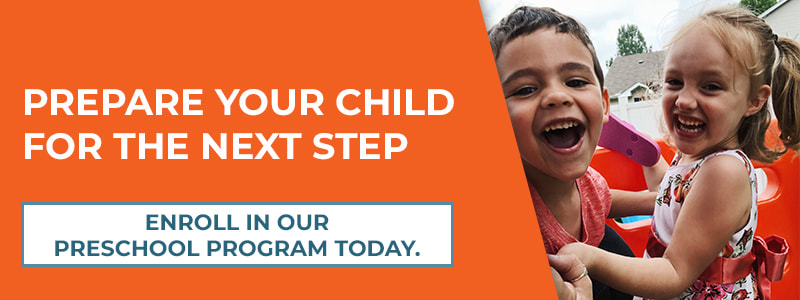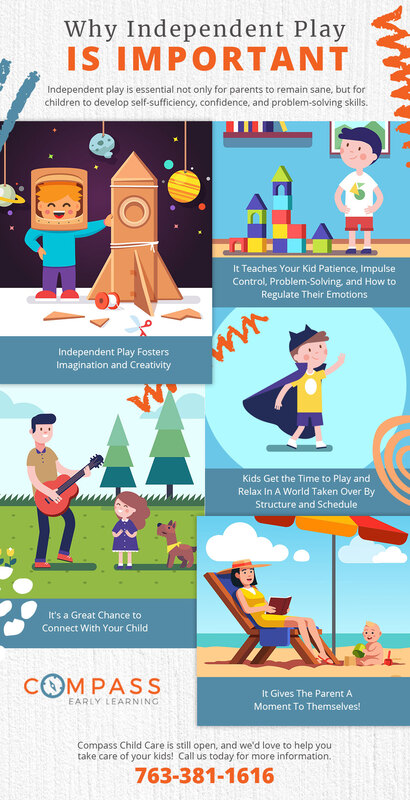|
Raising a child is a truly beautiful experience, but a singular one to each and every parent. There are great moments but there are also frustrating ones — when you leave the room, your toddler may cry out for attention, or pull the book you’re reading from your hands so you can play with them. While this behavior can illicit irritating responses from parents, it could be because your child hasn’t learned independent play yet and hasn’t learned how to rely more on their own direction. We often oversee our children’s playtime, so it would make sense that they rely on us for some inspiration. Teaching toddlers to entertain themselves isn’t just about trying to maintain your sanity as a parent, it is essential for them as well. Independent play helps your child develop and foster creativity, critical thinking skills, and confidence. Letting your toddler take charge of their own amusement gives them a much-needed opportunity to explore on their own, and it gives you some much needed time to do your own things as well. Keep reading to find out why encouraging your child to participate in independent play has advantages for you and them! For more information about our early childhood education center in Coon Rapids, Each Bethel, Isanti, and Blaine, contact Compass Child Care today. First, Let’s Define It Independent playtime is a daily schedule where your child plays without parents or siblings around to tell them what to do or how to do it. This doesn’t mean you shouldn’t provide the right space and the right toys, rather, it means that monitoring their play and controlling their actions isn’t allowing the unstructured playtime they need. Furthermore, this also doesn’t mean that you need to leave the room, as your child may not immerse themselves in their play unless they feel secure that their caregiver is within earshot or sight. The idea isn’t that your children should be alone, it’s that their playing should. Their play can be in a safe space where the child doesn’t feel isolated or banished. You can choose the time of the day that works best for you and your child, and play can happen in a room in your house or in your backyard. If it is in a room, be sure that all dressers are bolted to the wall and electrical cords are out of reach. The last thing you want is your child getting hurt during their unstructured playtime! Try To Resist Overpowering Their Play When you do want to play with your child, remember that you are the assistant and your child is the director. Do not send them the message that your ideas are better, that you can teach them, or that you can make it more fun. Try to resist the urge to lead and instead follow them passively without being disconnected or detached. Allowing them to take the lead helps them understand that they are not reliant on your instruction, rather, they are relying on their own. More importantly, they are learning that their ideas are valuable and worth pursuing, and they don’t always need an adult to give them direction.  Make Room For A Mess Children play and usually end up making a mess with what they are playing with. Messy or tactile play with materials like sand, clay, paint, and water is something that many parents avoid because it is inconvenient and hard to clean up. For kids, however, it is soothing to play with these things, not to mention it keeps them preoccupied for a long time. One way to contain the mess is to designate a room or some kind of space for it. The outdoors is nice because it means less of a liability indoors, but this mess can be safely contained indoors with large trays, buckets, and towels. It could take the form of letting your child play in the bathtub with shaving cream while you get some work done on your laptop sitting next to the tub. Get The Right Toys Out A little earlier we stated that letting your child choose their toys is a great part of independent playtime. This is still true, and it is good to have a variety of toys, ranging from difficult to easy, that will keep your child preoccupied for a long time. If the toys are too easy, they will lose focus and get bored. If the toy is too difficult, your child may get frustrated and give up. The same thing could be said about the number of toys you are providing your child with — if there are too many then your child could get overwhelmed. What you can do is stash some toys in a toybox before bringing them back out. After being absent for a period of time, the toys will appear more novel to the child and make them naturally more interesting. Toys should have the right level of difficulty so they are still challenging but interesting. Open-ended toys like building blocks or toys with movement like a car tracker can be great for children of nearly all ages. These objects can have multiple uses and are great for encouraging solo play because the endless possibility keeps kids entertained for longer. Lastly, Why It’s Important Independent play requires a level of self-reliance as well as the ability to focus and develop problem-solving skills. If there is no one else to reach for the toy or re-build a fallen block tower, then the child needs to figure it out themselves and continue building their creations successfully. This helps them manage their emotions and perseverance. When a child plays by themselves, they develop executive function, or the ability to self-regulate their emotions, develop patience, and control their impulses. These are critical to the child’s overall health, development, and future success. Children are over-scheduled — sometimes they need time to themselves to play and explore on their own. A great time to schedule independent play is while you cook dinner or before their bedtime, setting aside time solely for independent play to emphasize its importance. Giving your child the time to play on their own is important for raising confident, self-sufficient kids who don’t always need external validation or input to be happy or content. It is never too late to start, and is always a great thing for your kid to practice. Compass Child Care provides early childhood education programs that are geared towards helping your kid expand their creativity, confidence, and problem-solving skills. Take a look at our preschool programs at our locations in Coon Rapids, Each Bethel, Isanti, and Blaine, and to enroll in our early childhood education programs, contact us today. |
AuthorWrite something about yourself. No need to be fancy, just an overview. ArchivesCategories
All
|



 RSS Feed
RSS Feed
